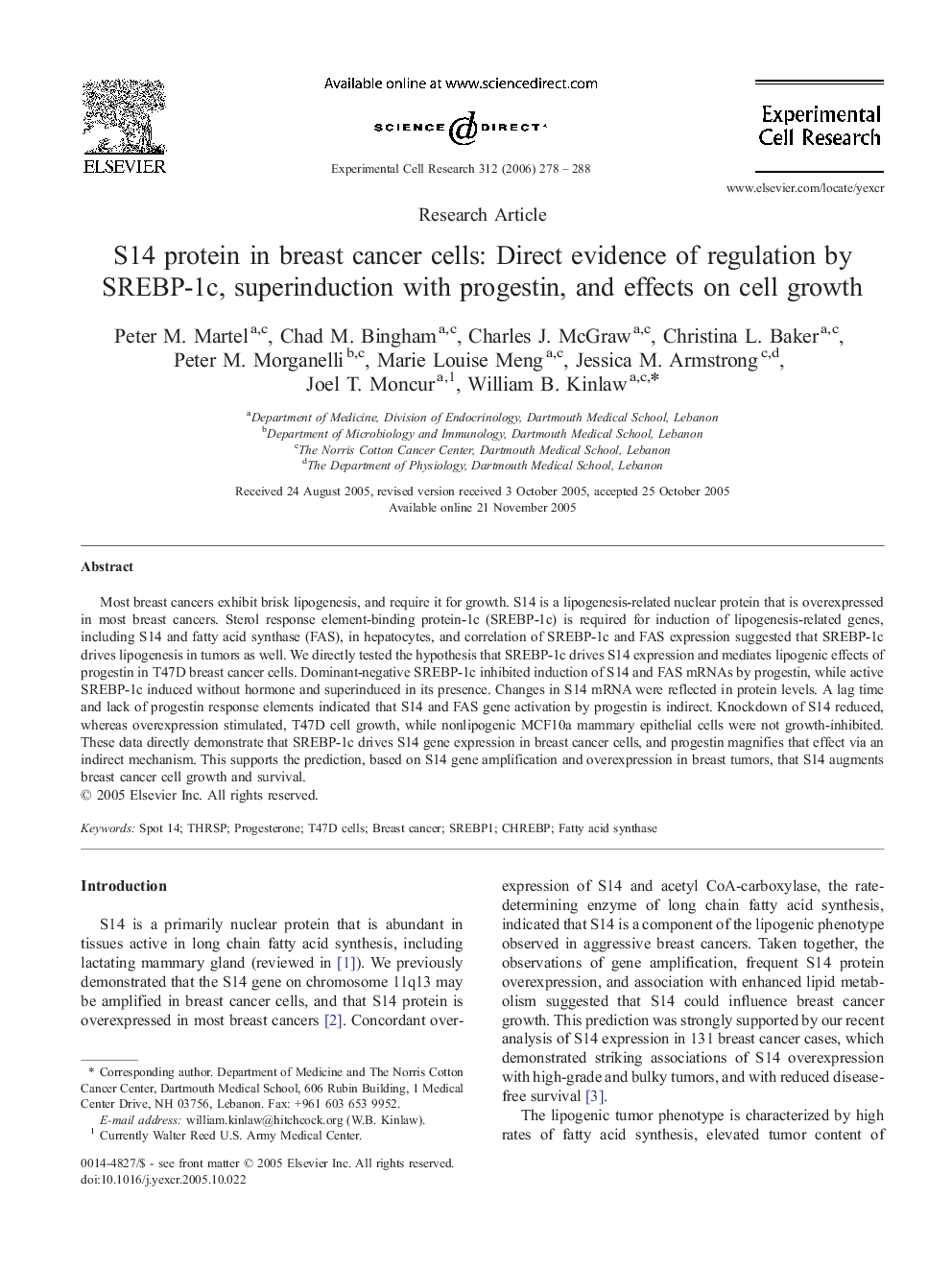| Article ID | Journal | Published Year | Pages | File Type |
|---|---|---|---|---|
| 2133149 | Experimental Cell Research | 2006 | 11 Pages |
Most breast cancers exhibit brisk lipogenesis, and require it for growth. S14 is a lipogenesis-related nuclear protein that is overexpressed in most breast cancers. Sterol response element-binding protein-1c (SREBP-1c) is required for induction of lipogenesis-related genes, including S14 and fatty acid synthase (FAS), in hepatocytes, and correlation of SREBP-1c and FAS expression suggested that SREBP-1c drives lipogenesis in tumors as well. We directly tested the hypothesis that SREBP-1c drives S14 expression and mediates lipogenic effects of progestin in T47D breast cancer cells. Dominant-negative SREBP-1c inhibited induction of S14 and FAS mRNAs by progestin, while active SREBP-1c induced without hormone and superinduced in its presence. Changes in S14 mRNA were reflected in protein levels. A lag time and lack of progestin response elements indicated that S14 and FAS gene activation by progestin is indirect. Knockdown of S14 reduced, whereas overexpression stimulated, T47D cell growth, while nonlipogenic MCF10a mammary epithelial cells were not growth-inhibited. These data directly demonstrate that SREBP-1c drives S14 gene expression in breast cancer cells, and progestin magnifies that effect via an indirect mechanism. This supports the prediction, based on S14 gene amplification and overexpression in breast tumors, that S14 augments breast cancer cell growth and survival.
